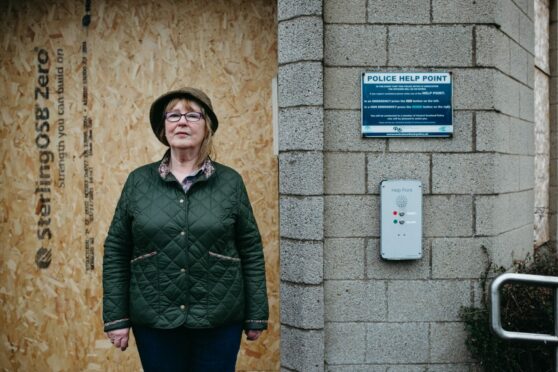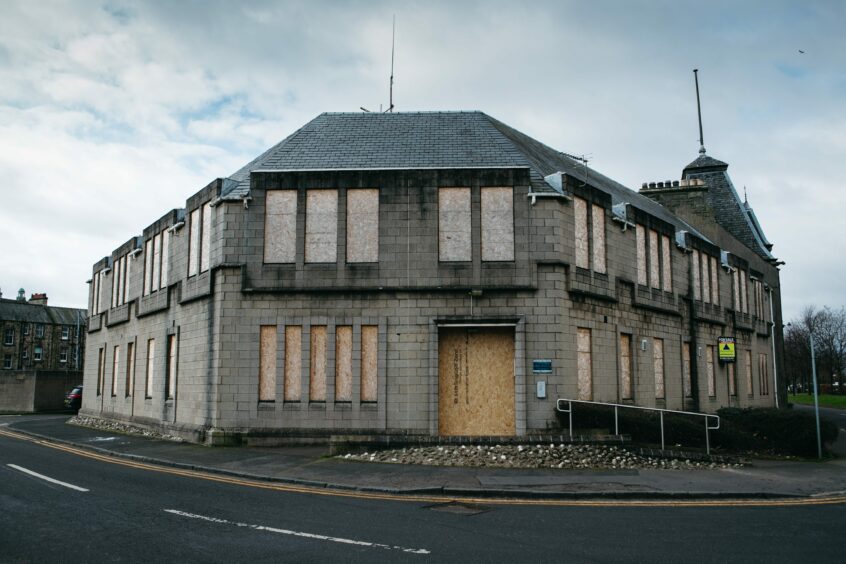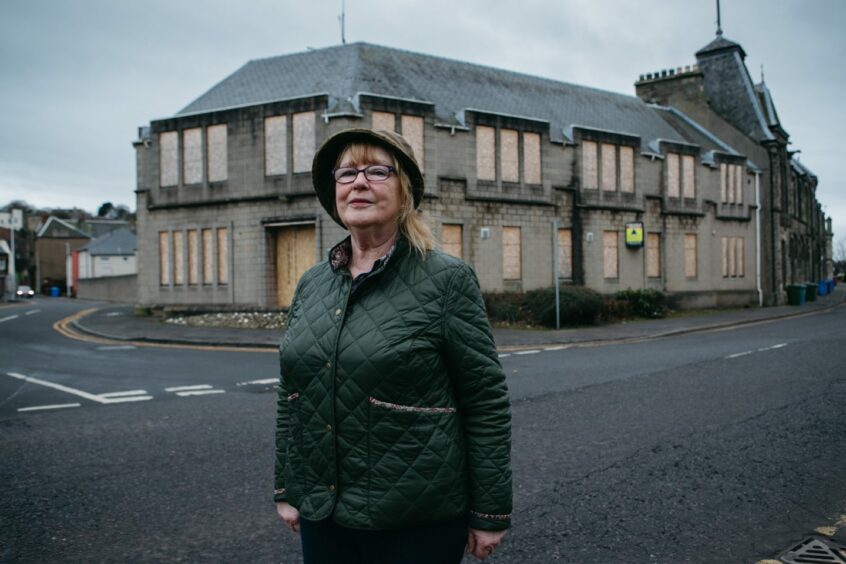
Break-ins have risen in communities where Police Scotland has closed stations, we can reveal, as research suggests the cost-cutting move is followed by an increase in theft and car crime.
Analysis of official data shows housebreaking rose in neighbourhoods soon after the national force closed down stations and comes in the wake of a new study showing a similar trend in Germany where academics concluded shutting police offices can trigger localised crime waves.
Research by the Leibniz Centre for European Economic Research, published in the Journal Of Public Economics, looked at the effect of closing stations in Baden-Wurttemberg between 1998 and 2011. It concluded: “Stations represent an important and visible aspect of the organisation of police forces.
“We find that closures do not affect theft in total but significantly increase car theft and residential burglary. We can rule out explanations such as changes in police employment or strategies at the regional level. We argue that criminals are less deterred due to a lower visibility of the local police.”
Meanwhile, analysis by The Sunday Post suggests more than 60 Scottish stations were closed or had reduced opening hours after the creation of the single force in 2013. Many retained police signage but were not open to the public.
However, in August 2018, a fresh round of savings saw more stations axed and dozens put up for sale. In most cases, they were not replaced and services were relocated to central hubs in other towns and police signage was replaced by For Sale signs.
We looked at three communities –Bo’ness, near Falkirk, Bannockburn, outside Stirling, and Rosyth, in Fife – where the station’s patch closely matched the boundaries of council wards, allowing analysis of quarterly crime data. We compared figures for October 2018 to December 2019 – the period between the offices closing and the pandemic arriving – with October 2017 to December 2018.
Nationally, cases of housebreaking and motor crime – thefts of or from vehicles – fell 4% from 26,557 to 25,386 but, across those three communities, they climbed 40% from 118 to 165, matching the German findings.
Broken down further, in Bo’ness and Bannockburn, motor crime hit levels unprecedented since Police Scotland was formed and burglaries more than doubled in Bo’ness. Overall, Rosyth’s tally dipped slightly, despite a small increase in housebreakings.
Bannockburn community councillor Linda Masterson said: “We didn’t want the police station to close in the first place.
“There is new housing going up here but we don’t have the infrastructure to deal with it and the station was part of that.”
David Hamilton, chair of the Scottish Police Federation, which represents more than 17,000 officers, said: “This is research that every police commander, local councillor and politician should take note of. With council elections approaching, the importance of police visibility in our communities is rapidly becoming a key topic.
“This validates our challenges on a number of recent station closures which, instinctively, we knew were wrong. Fewer stations mean longer journey times for officers, less community visibility and more opportunist crime.
“The hub model of policing, where resources are centralised in bigger stations, may be easier and cheaper to manage for police forces but, as we see in both Germany and Scotland, the cost to communities comes in more crimes such as housebreaking and car crime.”
Scottish Labour justice spokesperson Pauline McNeill said: “Years of centralisation and cuts under the SNP have gutted local policing.
“Communities have always desired the visibility of police forces where they live and that includes the presence of a local police station. These stark figures lay bare the real effect this has on people’s lives and the safety of our communities.
“We need to rebuild local policing so that we can tackle crime and make sure people can feel safe in their homes.”
Mid-Scotland and Fife Labour MSP Alex Rowley, who called for a review of station closures in 2015, said: “In some communities, I would contend that anti-social behaviour would not have risen like it has but for the fact there are fewer police officers working in communities on a day-to-day basis.
“The centralisation into Police Scotland has meant a far-reduced level of community policing.
“Frontline police officers have done a tremendous job throughout the pandemic but are overworked, understaffed and find themselves being spread far too thinly.”
In all, Police Scotland has scrapped 96 properties, raising £28.5 million in sales.
Bannockburn’s office is now a vacant retail unit and Rosyth’s is a private home while the premises in Bo’ness remain empty and on the market at £100,000.
Police Scotland said: “Our most recently published figures reported that housebreaking was down by 19.9% year-on-year and 38.9% compared to the five-year average.
“Vehicle crime was also down more than 7% year-on-year. Housebreaking and vehicle crime reports reduced in Falkirk, Fife and Stirling council areas.
“Scotland’s policing estate has been built up over the course of several decades and has suffered from a historic lack of investment.
“Some buildings are no longer in the right place, are not operationally fit-for-purpose and not designed in a way which allows us to work alongside key delivery partners. We carefully consider all options regarding the use of policing buildings, including co-location or relocation, and consult with a range of stakeholders and the local community.
“Our policing strategy is designed to support our plans to enable officers to spend more time out in communities, such as the successful roll-out of mobile devices.
“Reform of policing in Scotland means communities are now served by stronger operational competence and better access to all policing capabilities.”
Community frustrated by police indifference
Former shopkeeper Lynn Munro represents her home town of Bo’ness on Falkirk Council.
Of the police station closure, she said: “People didn’t want the station to shut. They feel abandoned. When they see this evidence crime has risen, they will be horrified.
“For the past three years, there has been deep concern at the lack of police presence as we are nine miles away from the station in Falkirk.
“We have had spates of crime since, where groups of people have been going door to door and actually walking into people’s houses. There is now empirical evidence of a trend and we have to wonder, where is the resource going?
“Police Scotland needs to ask itself if it can reassure people and, more importantly, deter criminals from the inside of a car going past every now and then?
“The community council has, on numerous occasions, offered community officers – when they actually attend a meeting – a room in the library or community hall. They just say they will have to go back and ask their senior officers. It’s been perfectly clear they’re not in the least bit interested.
“We see two officers once a month at a meeting as a gesture. They stay for 10 minutes, say everything’s fine then leave.”
The Conservative councillor added: “What really frustrates me is that there is a lot of literature about the threat to community spaces.
“Across Scotland, we’re seeing all sorts of municipal buildings that provide community cohesion and spirit, such as libraries, closing down. Police stations are part of that. Bo’ness is like a huge village with the same sort of support networks and we like to think there’s not very much crime here.
“But, in fact, the population is 15,000 and another 1,000 homes are either being built or have been approved. Yet we don’t have a bank, job centre or police station.
“People here feel frustrated that they are being ignored and neglected by authorities, including the police.”
The voice of victims
By Alex Mayes, Victim Support external affairs manager
The sanctuary of home has never been more important than over the past two years.
With many of us struggling with the tragedy and uncertainty wrought by the pandemic, feeling comfortable and secure in our own homes was vital.
Unfortunately, being a victim of housebreaking can rock the sense of safety most of us take for granted. As a specialist charity that works with victims of crime, Victim Support helps tens of thousands of people who have been affected by burglary every year.
We see just how traumatic it can be for victims and their families. We also see how its impact is too often overlooked.
Dealing with loss after housebreaking can be devastating. While the financial fallout is particularly difficult, we often hear from victims who say that no money can replace the sentimental belongings and treasured memories that have been lost.
Just the knowledge that a stranger broke into your home and invaded your personal space can be deeply upsetting.
Losing the place where you can relax and unwind with loved ones makes many victims feel stressed, scared and vulnerable. It can be particularly difficult for children. Home is where they should feel the most protected and cared for and having someone break into this safe space can be very distressing, especially if they are too young to fully understand what has happened.
Sadly, many victims blame themselves, thinking that they could have done more to protect themselves and their families.
This makes it even more difficult to move on after the crime. Others feel embarrassed, as though they were tricked by the thief. It is so important that victims know housebreaking is never their fault.
It is a crime that remains far too common – which is why it needs to be taken seriously by the police and the government.
Every victim of housebreaking deserves to have their case investigated and every victim deserves to feel safe again in their own home.

Enjoy the convenience of having The Sunday Post delivered as a digital ePaper straight to your smartphone, tablet or computer.
Subscribe for only £5.49 a month and enjoy all the benefits of the printed paper as a digital replica.
Subscribe
